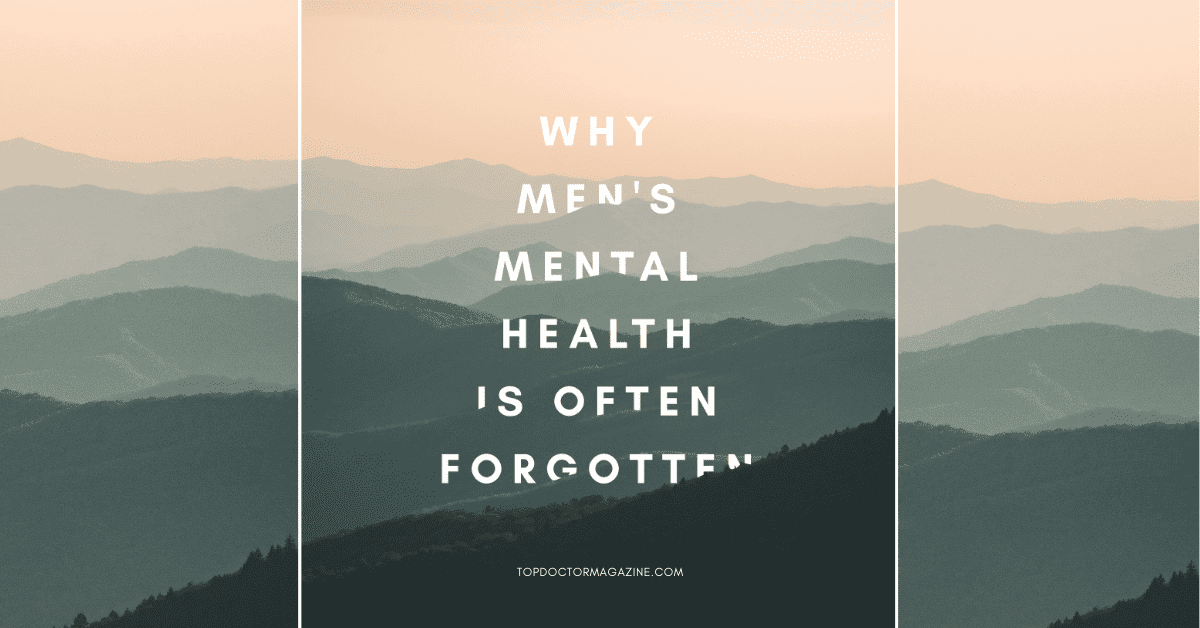We always find new ways to stay healthy. We go to the gym, exercise at home, eat healthy meals and hydrate ourselves, but there is one aspect of our health that we often neglect – our mental health.
Humans can suffer from a mental health condition due to various factors, but mental health illnesses in men often go unnoticed. Unfortunately, many men, including those of celebrity status, can suffer from mental illnesses. Notable celebrities tragically lost to mental illness are Chester Bennington, Anthony Bourdain and Robin Williams.
Why Don’t Men Talk about Mental Health Problems?
Mental illness is often seen as affecting women more than men. This misconception stems from the common belief in “male strength.” Men are less likely to speak about their emotions or challenges due to the fear of seeming less masculine.
Our treatment of masculine mental health problems is another reason why men suffer from mental disorders more than women. They are often criticized, accused of being weak, and told to “man up.” These responses can force men into thinking that mental illnesses make them inferior and hide any need for help. It could mean losing their families’ approval and their friends and co-workers’ respect.
Signs of Men Having Depression
Mental health issues are the most significant cause of disability worldwide, with about 5% of all global health disabilities due to mental health disorders. Suicide is the tenth leading cause of death globally. Males account for nearly 75% of all suicide cases. It would then make sense that most people with mental illness are men; however, this isn’t the case.
It is believed that 1 in 4 people will be affected by mental health issues at some point in their lives. Mental illnesses range from depression, anxiety, bipolar disorder, post-traumatic stress syndrome (PTSD), personality disorders, etc.
Numerous factors cause mental illnesses. Someone with a family history of depression is more likely to develop it. Stressful situations, loss of a loved one, financial problems and complicated relationships are also factors. Mental illnesses can also occur to someone who has medical conditions such as diabetes, cancer or heart disease.
Signs and Symptoms of Mental Health Conditions
- Aggressiveness, anger, and irritability;
- Changes in mood or energy levels;
- Changes in appetite or sleeping habits;
- Difficulty focusing;
- Feeling restless;
- High consumption of alcohol;
- Feeling sad, hopeless or numb;
- Aches, pains or other physical symptoms without a clear cause;
- Obsessive or compulsive thoughts or behaviors;
- Thinking or acting in a way that causes concern to others or harms work, social or family life;
- Contemplating suicide.
How Can You Get Help?
There are many ways to help a person who has a mental illness. Ask them how they are feeling. Look for changes in their behavior, especially if someone just experienced an event that could trigger depression. Keeping in touch or calling them can make a big difference.
Encourage them to talk to a mental health professional and participate in support groups. Having support from a loved one can significantly impact someone’s recovery.
Helpful Organizations That May Be Helpful for Men with Mental Illnesses
- National Alliance on Mental Illness, available at 800-950-NAMI (800-950-6264) or by free text for those in crisis (text “NAMI” to 741-741);
- National Suicide Prevention Lifeline, available 24/7 at 800-273-TALK (800-273-8255);
- Face It Foundation provides support groups, peer support, and other resources for men with depression.
A Parting Reminder
You may never know that someone is suffering until it’s too late. It’s better to talk about mental health than to suffer in silence. We should also keep ourselves in check and make sure not to neglect our mental health as it is not just you who would suffer, but also our loved ones.
Another important reminder – always be kind!






0 Comments